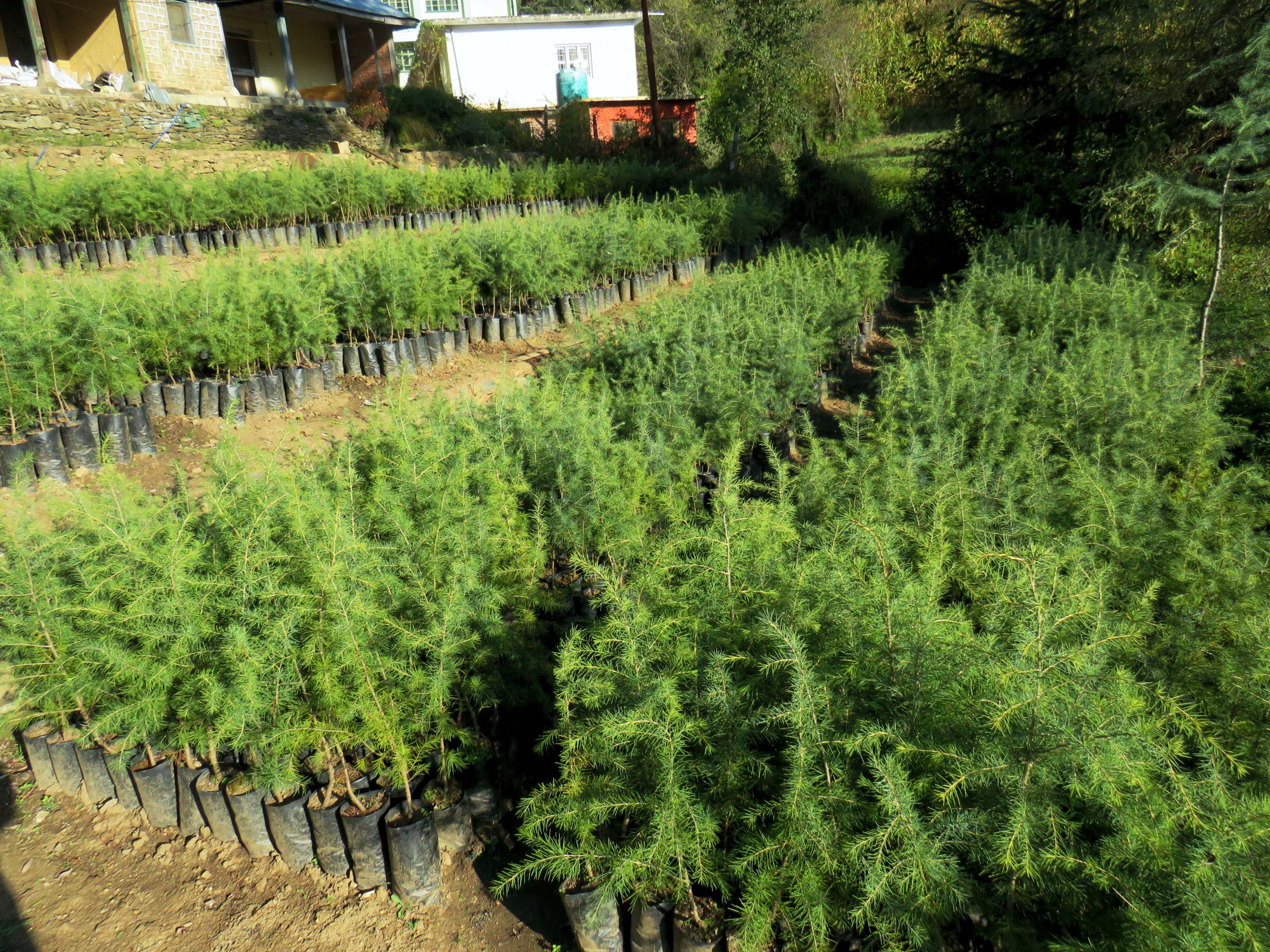Product Description
The Great Himalayan National Park occupies nearly 1000 square kilometres (approx. three-fifths the size of London) mainly situated in Himachal Pradesh, Northern India. The Park is patrolled by Government Rangers. It is a serious offence to hunt or gather any flora or fauna without a license. Pesticides, fertilisers, and the introduction of new species are banned in this region, and farming and forestry activity is heavily restricted by the licensing requirements. Everything is done to protect this treasure of an ecosystem for generations to come.
No Himalayan Cedarwood trees are felled. All Cedarwood Oil is produced from trees that have naturally fallen due to strong winds, disease and extreme weather conditions. Every root of fallen trees is ground out so no off-shoots emerge, as studies have shown that these off-shoots usually grow with high susceptibility to infection, and in turn will increase potential risk of damaging other trees. For every tree that has fallen, the Licensed Producer plants four more trees from saplings grown in local nurseries. This ensures the process is renewable and the ancient landscape is maintained. Of these four saplings, one or two are expected to survive to reach maturity (approximate 20-year cycle).

Image: Himalayan Cedarwood Saplings
The older the wood, the more oil is present, with an effervescent red glow showing the rich presence of the oil. The steam distilled oil is usually sold rectified to remove some unpleasant phenolic notes and then, like a fine wine, Himalayan cedarwood oil matures beautifully. It is difficult to imagine a more pure or sustainable source of an essential oil.
Reducing Emissions
In 2021, Khush Ingredients published our Ethical and Sustainability Policy (see here). The purpose was to highlight the key aspects of our business that we are striving to improve and ensure are of exceptional quality throughout our supply chain. As part of this improvement initiative, Khush Ingredients is actively reducing CO2 emission outputs when importing and exporting essential oils.
As we are now importing a greater quantity of Himalayan Cedarwood each year, we are shifting our import method from airfreight to sea-freight, as sea-freight emits far less CO2 than airfreight. When importing by airfreight, we calculate an output of 4.25kg of CO2 per kilogram of essential oil, compared to sea-freight, which emits 0.055kg of CO2 per kilogram of essential oil. This is projected to save 4.195kg of CO2 per kilogram of Himalayan Cedarwood Oil that we import via sea-freight. So, when we next import 1 tonne of Cedarwood Oil by sea-freight, we are saving roughly 65 full, family car-sized tanks of petrol in CO2 emissions.
